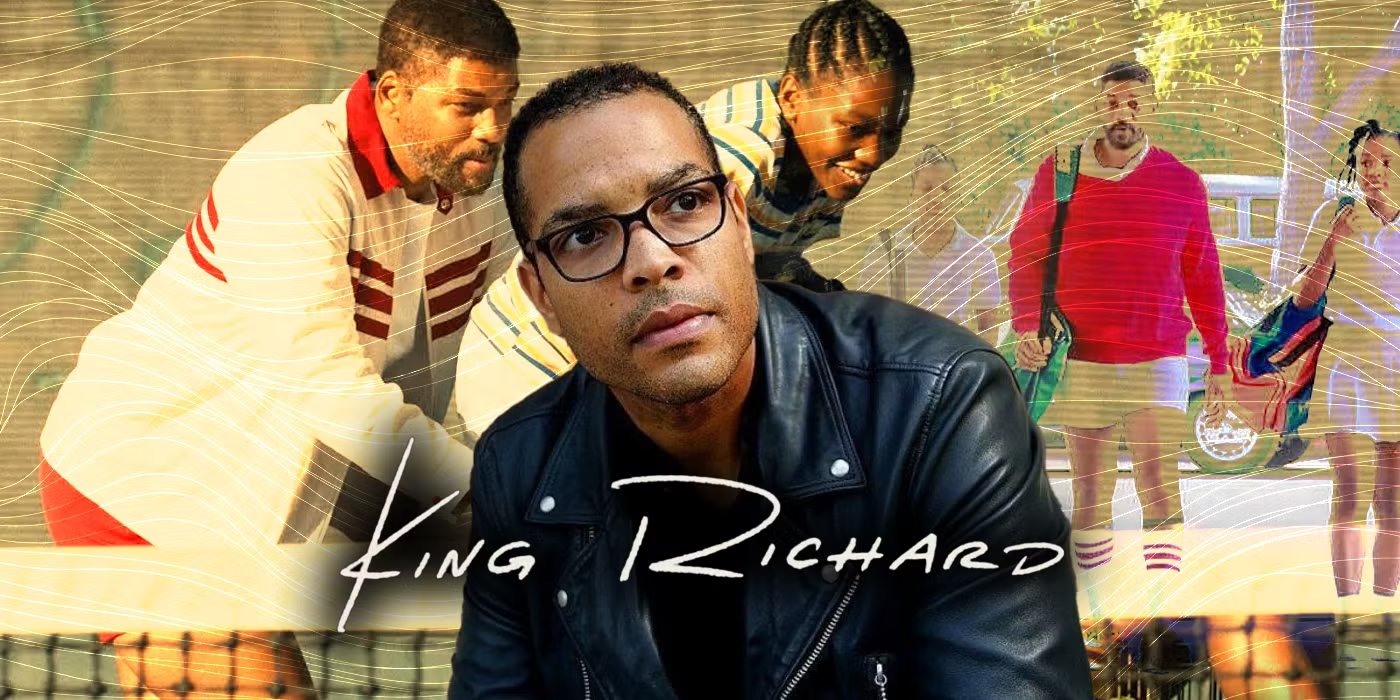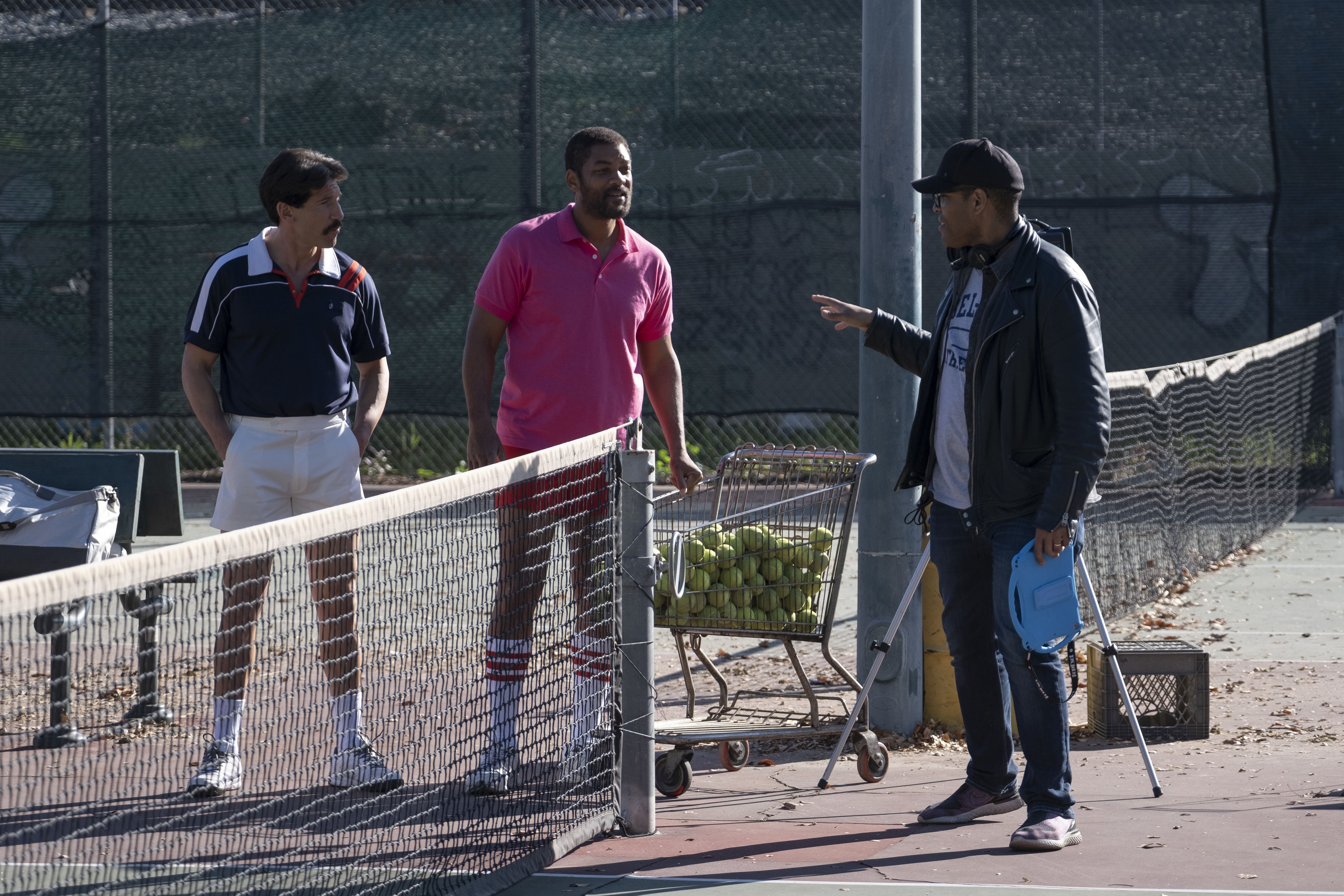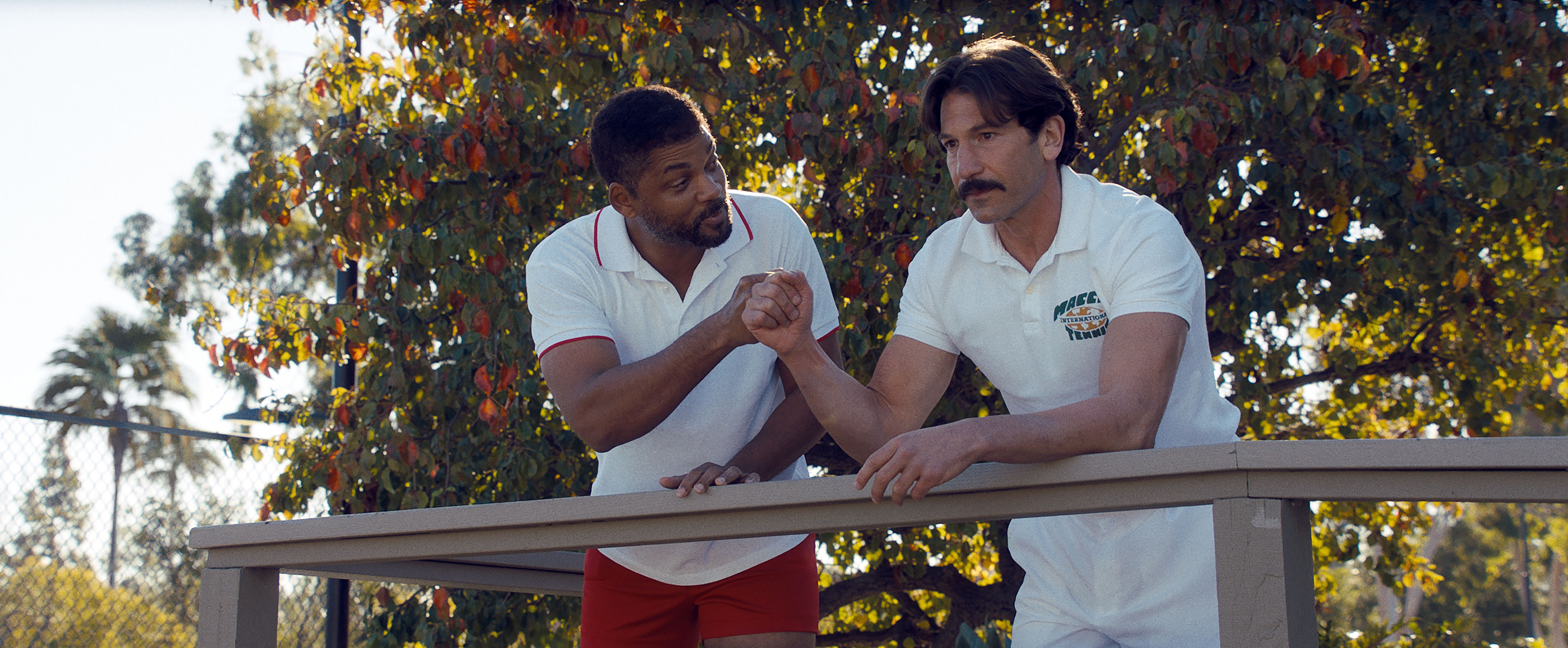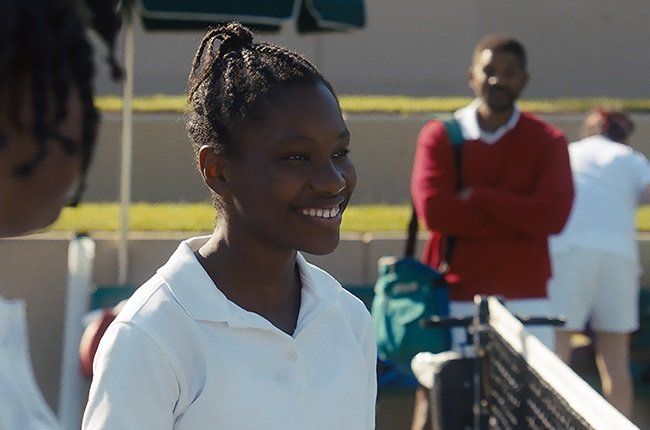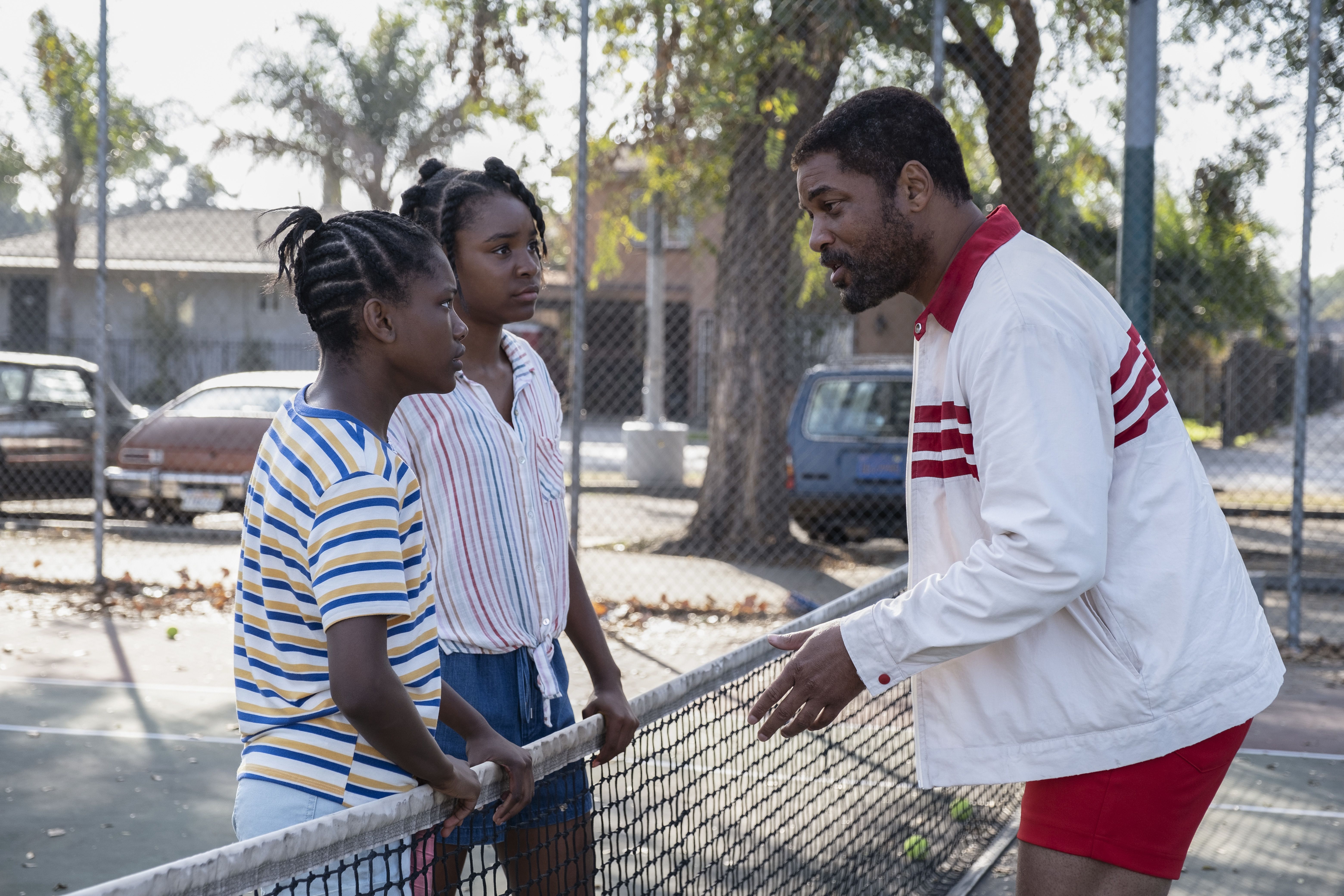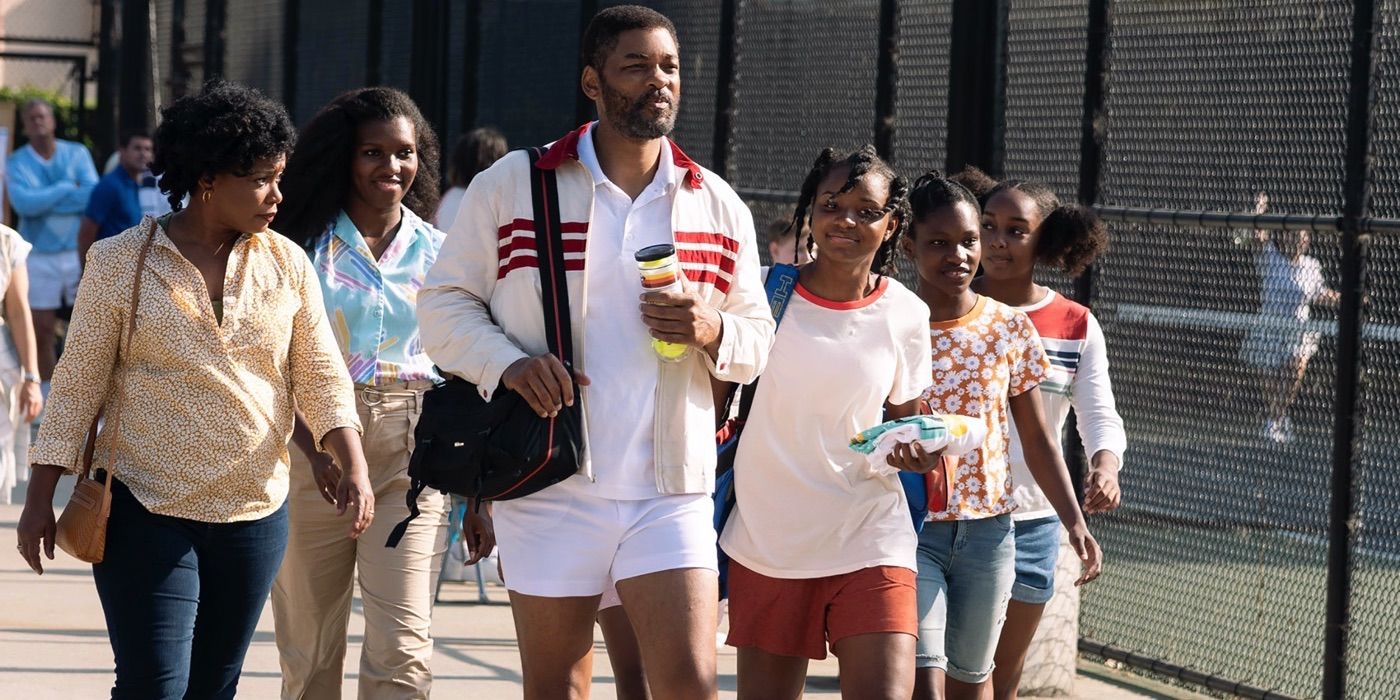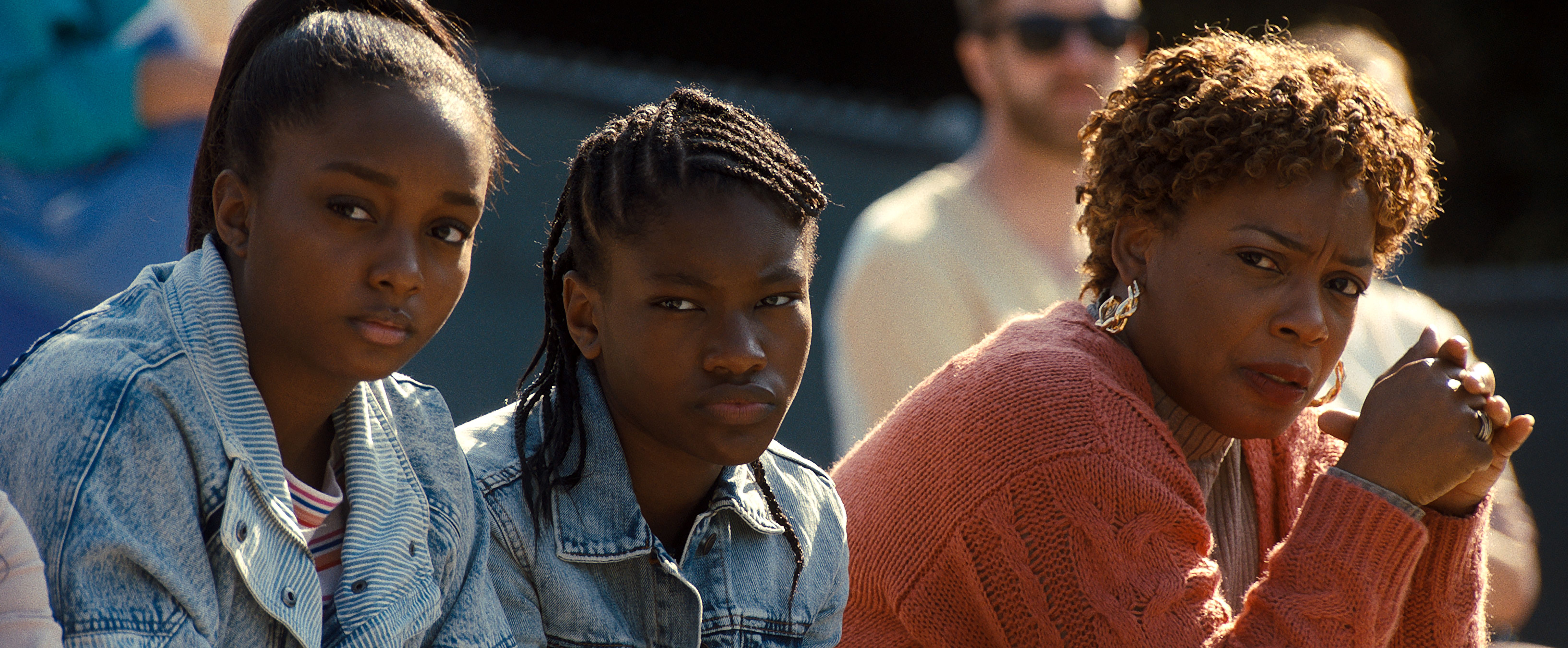With King Richard now playing in theaters and streaming on HBO Max, I recently got to speak with director Reinaldo Marcus Green about making the fantastic sports biopic. During the wide-ranging interview, he talked about working with Will Smith and his remarkable performance, what he thinks is the most unbelievable part of the incredible true story, why having a break in the middle of the shoot due to the pandemic helped make the movie even better, and more. In addition, he talked about the status of his Bob Marley biopic and how it focuses on him recording Exodus in 1976, and working with David Simon on the limited series, We Own the City.
As most of you know, King Richard stars Will Smith, as the titular “King” Richard Williams, the father and coach of two of the biggest names in the tennis world, Serena and Venus Williams, played by Demi Singleton and Saniyya Sidney, respectively. Featuring an incredible performance by Will Smith and a story that you will think is made up but is absolutely true, King Richard is a great reminder that anything is possible, as long as you are willing to put in the work. The film also stars Aunjanue Ellis as Oracene 'Brandy' Williams, Jon Bernthal as Coach Rick Macci, Tony Goldwyn as Coach Paul Cohen, and Dylan McDermott.
Read what Reinaldo Marcus Green had to say below.
COLLIDER: I'm going to start with congratulations on the movie. I'm sure you're hearing that from everyone. So what does it actually mean to have spent all this time working on it and then having all these great reviews?
REINALDO MARCUS GREEN: It feels good. I'm not going to lie. It certainly feels good. It's definitely better than the opposite. For me, obviously, for the cast to get their love, for the crew to get their love, it's so important, man. People put their lives on hold, they sacrifice a lot. I know Saniyya and Demi, who spent probably eight months on the court training. Is going to add up, and for them it adds up. So that's got to feel good. They were young kids, man, when we started that movie, and I mean, they're still young, but they were really young, and young girls, and it's a precious period of time in their lives. Literally during the pandemic we were shut down for nearly over five months, and they both grew an inch and a half. You could literally see them growing during the course of the movie.
So it's wonderful to share that with them. To see Aunjanue getting the love that she's getting. To see Will getting the love that he's getting. Will really went there with this particular piece. I don't know his process with the other films, but he was 100% in since day one. And his process was second to none. His dedication, his prep time. So to see them get the love, it feels good. Zach Baylin who wrote an incredible script. I hope people will be able to see that. Like I said, some incredible people that were part of this film. Kris Bowers, his music, Robert Elswit, cinematography, Pam Martin, editing, Sharon Davis costumes, Wynn Thomas, production design. The list goes on of the folks that worked on this. And if their work can be seen on the big screen by many, that will make me feel very good.
I like throwing the curve ball at the beginning of interviews. So, if you could get the financing to make anything you want, what would you make and why?
MARCUS GREEN: I have a personal project I'd love to make. I'd make it because I wrote it, and I could be a part of that process from beginning to end. It's personal in that way. And feels like, as someone that views themselves as, hopefully, having original ideas, or being able to have vision, and being able to get stories made, that would mean a lot to me to get that out there. So, yeah, hopefully it's a project that I can-
Does the project have a title?
MARCUS GREEN: It's untitled right now. It doesn't need a title, but it's definitely, I would say, it's a futuristic sports story.
Okay. I'll leave it there.
MARCUS GREEN: Moneyball meets Her.
Oh, wow. Okay. I'm now imagining what you might be doing, but I'm going to just leave it alone and move on. So I'm curious about is what is it like the night before you're going to go in and meet with Will, or meet with people to pitch the movie, or talk about the movie? Are you sort of in your head a little bit? Are you nervous?
MARCUS GREEN: Yeah. Look, everybody's terrified. I mean, it's like, I was the closer on my college baseball team, and it's still terrifying, but I was the guy that had to throw strikes when the game was on the line. That was the position that I played for four years. I grew up an athlete. It's butterflies is more sort of the feeling. It's an excitement. I never, in my short career, have not done anything that I felt like I wasn't right to do. So, whether I failed at that, that's a whole other story, but I was going into every challenge thinking that it was an opportunity for me. And I was always going to be myself. Maybe that's just the upbringing that we grew up in. I'm not going to go beat myself. I remember I struck out looking in a game, and my father, I had come home, and he was like, "You struck out looking."
I had to do 200 swings in the living room because I struck out looking, and I was like, this seems intense. I'm a young kid. But for him it was like I was letting my teammates down. It was less about striking out. It was that I didn't take the bat off my shoulders. And that was the lesson that he was trying to teach me. At that moment in time it was like, you can't let your team, you're not going to beat yourself. You can lose and strike out. That's no problem. But you can't not swing. So that was my upbringing. I went into all those meetings with like, look, I'm going to swing and see what happens. And look, I hit the ball. Sometimes the ball travels. Hopefully, in that analogy, hopefully the ball's still traveling.
What's crazy about this story to me is that if someone wrote this as a Hollywood script, everyone would say, this is never happening. This is too farfetched. Get out of the room. So I guess for you, when you think on everything that he did, and everything that they accomplished, what's the thing that is for you the most unbelievable? Like you couldn't make this up?
MARCUS GREEN: The most unbelievable thing? Look, they all love each other, man. It's not easy to grow up, five girls in a tiny bedroom, and for them to still be friends, and as close as they are today. I remember meeting Venus, and she was, and this was before we started making the movie, and she was like, "Look, Serena would skip a match to see me practice. That's how close we are." That's unbelievable to me. I have an older brother who I love, and there were times, there were moments, we all have them. And they just don't. The unconditional love that these girls have for each other is unreal. And it's not made up. You see them when they would come to set and hang out. You're just like, I don't understand how close this family. It's bonkers to me. You hear siblings that don't talk to each other, or don't know each other, and they're a stranger. It's just not like that with that family.
I think their legacy goes far beyond the tennis court. What they were able to accomplish outside of the court is remarkable. The fact that they were mentoring while they were playing as young kids. None of that's made up. They didn't wait to become famous to then start giving back to the community. They were doing that all along. It's just a testament, man, to their upbringing. To Oracene, to Richard, to what they provided to those girls is amazing. So yeah, how close they are as a family unit, what they were able to accomplish together, they never talk about it as two girls, they talk about it as five. They talk about it as we were all hanging balls. We were all picking up balls, we were all hanging signs. Their older sisters were on the court. Like, man, it took a village, and they certainly proved that it's possible, if you believe in yourself, you can get through anything.
Will, obviously, is fantastic in the movie. He's such a great actor. What is it, because I saw some video of him on set and it almost made me, it sounded like he was staying in Richard's voice, in between takes. Was he doing that?
MARCUS GREEN: Yeah. Will, would come off set and be rapping, but in Richard's voice. So it would be hilarious. He was constantly, he was Richard all day and it was awesome. But look, he's method, but he's still approachable. He's not the guy that's like, "Only call me Richard." It wasn't any of that. But for sure he was locked in. I think it was the short shorts, if I'm being honest. He just put those on and he was just able to flow. Will's ability to pivot and navigate within scenes is unreal. He's on his feet, he's on his toes. He always has a line up the sleeve. So he's able to take the script and just mold it and really wear it. He wears it in a way that is his own style. And I think that's what Will does so well, man, but it comes down to prep.
We had so much prep on the movie. We spent so many countless hours breaking down the script, and the arcs, and the emotional breaks of the movie. We spent a lot of time talking about that stuff. And look, even when we started shooting we had five extra months. The pandemic was not a time for us to just rest. We restructured a lot of the third act of the movie. There were a lot of scenes that ended up changing by virtue of us having more prep time, and for the better, and that included the scene with Richard and Venus on the tennis court. That was originally in a bedroom. There were so many things about the movie that got better because we had that prep time. And Will stayed, he kept that belly throughout the whole pandemic. So it was good. I'm sure he was loving eating muffins, and doing all of that, and just letting it all hang out, so to speak. I'm really proud of him.
You brought up something I wanted to talk about, which is that every filmmaker I've ever spoken with has said that having a break in the middle of the shoot is like the greatest thing ever, because you can look at the footage, see what you have, and it makes the film better. But unfortunately, in a normal circumstance, you don't have the budget and the time to do something like that. Were there a lot of big changes that happened?
MARCUS GREEN: Yeah. So we hadn't shot the junior section, so we were very fortunate to actually shoot in chronological orders. So we shot all the Compton aspects of the movie before the shutdown, bar two scenes. And so we were literally headed to Florida in our storyline. So the girls, played by Saniyya and Demi, they literally both grew about an inch and a half during that shutdown. So we needed them, we had all these tricks on how we were going to make them look older, and figure it out with clothing, and costume, and hair and makeup. And they just grew. They literally matured during that window. The junior section was always a little bit of a tricky section for us in terms of sort of the emotional, how do we not get lost in the tennis of it, and how do we continue to have the story move at that time.
So we were able to really figure out how many tennis beats we needed, what aspects of the tennis we were going to do, and the things that Richard was seeing throughout the tennis. So it wasn't just about the tennis, it became really about Richard's story and the reason of why he wanted to pull them out of juniors. A lot of the nuance of that storytelling really happened during that shutdown. Quite frankly, we didn't have enough time in prep to really hammer that out. What went from being just sort of a passage of time montage really became a true story point for us in the movie, and really helps where Richard's psychological state is at that point in the film.
There were a lot of things that, again, the third act of the film and how that ramps up. So many of those scenes changed and got elevated, whether it was locations that went from interiors to exteriors, that really helped the film in a lot of ways.
Did you end up with a lot of deleted scenes and a much longer director's cut?
MARCUS GREEN: I'm so lucky. No. I was going into my Warner Brothers meeting, like, "Oh, well." I had the pen and I'm waiting for them to tell me what they're going to cut. It just didn't happen. It was amazing. It was amazing that they didn't make me cut that much out of the movie. Obviously, just getting the pace right, and figuring those things, and tightening things, but Warner Brothers didn't ask me to cut one scene out the movie. I was really lucky, I think, in that regard.
I think benefits from a longer first act because it pays off at the end, and you see what happens in Compton. You really need enough time there for us to have that payoff at the end. We were fortunate. We were fortunate. Look, it's not a short running time, but hopefully the movie feels right on time. That's more important than any running time in any movie is, what feels right for us. And this is what felt the most right for our film, and I'm glad that they let me stick with it.
I read and I could be wrong, that you are working on a Bob Marley biopic. Is that true?
MARCUS GREEN: It is true.
So I definitely have to ask you, do you have the music rights? What can you say about this?
MARCUS GREEN: Yeah, so we do have rights to the music, some music, for sure. And some good music. Ziggy Marley is, right now, my point of contact for the film, and producer on the project. So we're full steam ahead. I've brought on Zach Baylin to help me write it, which is great bringing our team back together. So hopefully we'll have a script very soon. I'm really excited about that one.
With biopics, obviously there's so much of his story to tell, have you already thought to yourself, I want to focus on these five years, or this weekend, or this one year, because otherwise with Bob Marley you could make a 20 hour miniseries.
MARCUS GREEN: Absolutely. And I think it's, like you said, it's finding that right window into his life. Our film starts in '76 and really it's about the making of Exodus. So that's primarily the window that we're going to focus on, with obviously, some flashes to his early life.
That actually could be a great title. Exodus.
MARCUS GREEN: It could be. I've got to ask Paramount about that one, but we'll work together. We'll work together to find something great.
Bob Marley had a lot of kids. You're obviously working with Ziggy. Is there any chance that one of his grandkids, or someone in his family could end up playing him?
MARCUS GREEN: Look, it's open season right now. Anything's possible. We don't have any cast, so yeah, absolutely. I'm open to finding, discovering someone completely brand new, could be a family member. I'm open to anything at this point. The best actor for the role.
I want to jump into one other thing, because I'm a huge David Simon fan, and you are working with David Simon right now. Can you sort of talk about, We Own the City, why it was important for you to tell this story?
MARCUS GREEN: Yeah, look, my first feature, Monsters and Men, which I made in 2017, came out in 2018, it was another opportunity to kind of get back into that world. I grew up with a father that worked for the Department of Investigation, so I knew what it was like to have a father with a gun, a shield. A lot of my friends growing up in Staten Island are police officers. I've always been interested in those aspects of law and how we build bridges in order to bring those community relations together. This particular project is fascinating. It's David Simon back in Baltimore. David Simon and George Pelecanos back in Baltimore after The Wire. 15, 20 years later. So it was an incredible opportunity. Jon Bernthal is starring, so I had to bring my Rick Macci back, which is great for us because it's another chance for us to collaborate.
What happened here in the city of Baltimore is tragic, but it's a microcosm of a lot of police departments. And as you know, being a fan of David Simon and George, these guys really go in there, and it's so detailed, it's so layered in their storytelling. And the layers in which they go down to the institution. The way they break it down is second to none. I'm really excited about it. It's a limited series, so it's not an ongoing, but it really does hit at the nerve of a lot of what's happening all over the country, and parts of the world. But they do it in a way that I feel like it's not a history lesson, and it's a way for us to really engage in something that's entertaining, but also hits at the heart. So I have another few days on that one, and then that'll be in the can. I'll get in the edit and hopefully we'll have something special next year.
I couldn't be more excited for David Simon returning to Baltimore. And the thing that you've touched on with his writing is that it's not black and white, it's all gray, it's all nuanced. His writing is just so exceptional.
MARCUS GREEN: Yeah. Those guys, their time as reporters being on The Sun, they know these stories. They're not made up. They're all based on real stories, and real lives, and a lot of our casting choices where people here from Baltimore. It's very authentic in that way. Jon is from DC, so it's not too far away. Even that choice was very particular. The nuances, where the paper sits on the desk, all of the details in the storytelling are just how deep they go in on these scripts. And it's incredible to have them on set as partners. And they're letting me fly, which is good. Maybe it's a little sauce that we have from King Richard, but they're letting me go, so I've been very happy. I'm still standing, so, so far so good.

